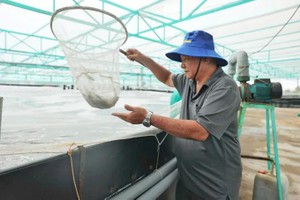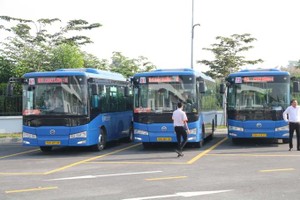The city Department of Health announced on March 30, that a program to stabilize the prices of essential medicines in 2011 has been approved by the Ho Chi Minh City People’s Committee.
The program begins from April 1, 2011 to March 31, 2012.

Domestic drugs produced under GMP-WHO certification in the country should be able to meet the domestic supply and demand in the market. The stabilized price on these drugs will be at least 10 percent lower than that in the market.
Tens types of drugs are included in the program, which cover fever and pain killers, anti-allergic drugs, diarrhea, cough, stomachache, heart diseases, diabetes, antibiotics and eye drops.
These commodities account for 50 percent of the market demand and will sell through pharmacies in hospitals, pharmaceutical store chains and private shops in residential quarters.
Participating enterprises can be given a loan of VND9 billion without interest or mortgage for 12 months. The city People’s Committee has chosen four enterprises including the F.T.PHARMA Pharmaceutical Joint Stock Company, Domesco Medical Import-Export Joint-Stock Corporation, Glomed Pharmaceutical Company and Euvipharm Pharmaceutical Joint-Stock Company to make drugs for the program.
However, there are some problems in the program procedure. According to Pham Khanh Phong Lan, deputy head of the Department of Health, the program targets to provide medication to outpatients who usually purchase drugs from their local pharmacies. However, nearly 50 percent of outpatients are residents from provinces and they prefer to buy drugs from their neighborhood pharmacies.
Moreover, people do not know which pharmacies sell medicines in the stabilization program. In addition, there is no one to control prices of drugs distributed in the pharmacies and there is no one to assure that these drug stores will not breach their pledge and sell drugs at lower prices.
























